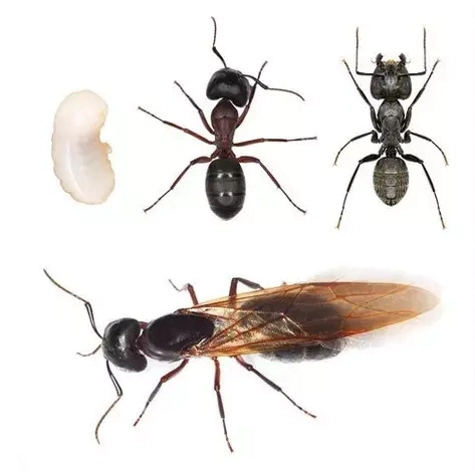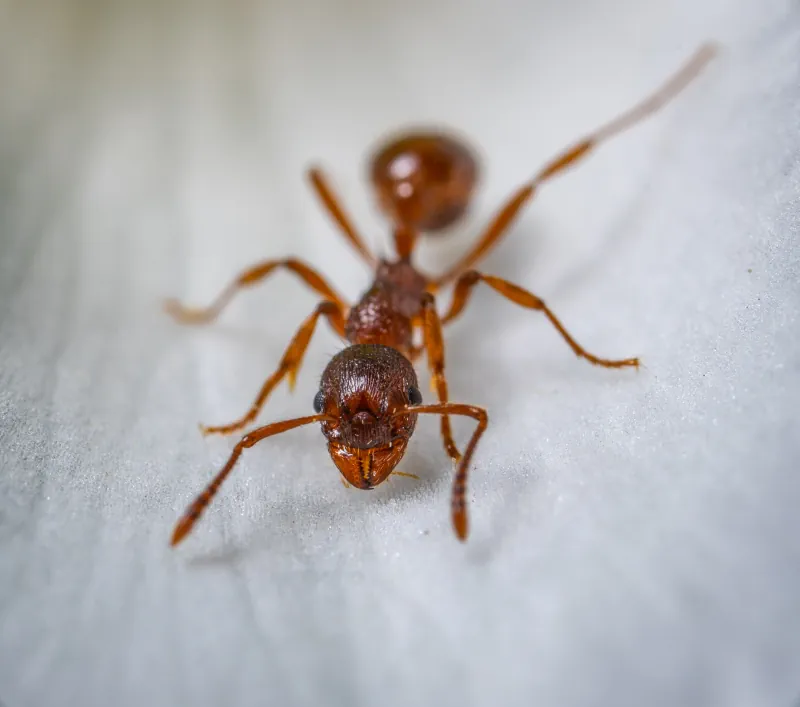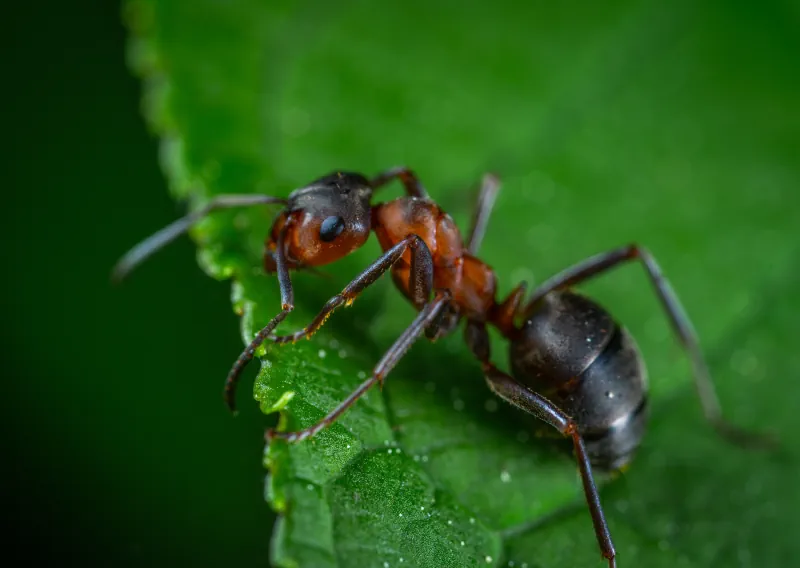Often, people mistake a termite infestation for ants. Between the two, termites can cause severe damage to your home and should be taken care of immediately. To tell them apart, check out our Ants and Termites page – but always call a professional for a second opinion.
It is much more crucial to treat termites than ants. Ants have been around for thousands of years, giving these organized insects time to learn and adapt to so many different habitats. There are so many ants that scientists estimate they make up 15 to 25% of all land-based animals. They are important to the environment too, as scavengers that help break down decaying biomass. However, when they start scavenging inside your home, they become a problem.


Ants are considered a pest when they invade homes for two reasons. The first is that they will raid your pantry and infest your food. The second is they can bring bacteria with them as they crawl across so many surfaces. This is bad for sterile environments like kitchens. Additionally, seeing a few ants inside your home typically means there is a full-sized colony hiding on your property nearby. The ants inside can be the sign of a much larger problem. If you’re seeing ants where they shouldn’t be, call Etheridge Pest Services and we’ll take care of any infestation.
Tips for preventing Ants
The easiest way to keep ants at bay is to make your home a fruitless place to explore. When ants are scavenging your home, they are in search of food for the colony. If they don’t find anything, they won’t want to return. Make sure to keep your kitchen and any areas you eat at clean. Sweep and vacuum to keep food debris off the floor.
If you are currently dealing with ants, try to move any opened bags of food into plastic storage containers to ensure no ants get into your bags. This also goes for bags of pet food as well.
Remove the scent of ant trails by mixing vinegar and water in a spray bottle and wiping down the paths you see ants travel in. Not only will this ruin the trail they’ve left, but the vinegar is a natural repellant, forcing ants to find a new way to your food.

Check any indoor houseplants for ants, as some ants will start a colony within your own home if left unchecked. Some ants will even burrow under the soil, making them even harder to detect. If you do find ants, throw some citrus peels in the planter to deter them from wanting to stay.
Once you’ve cleaned and secured the inside of your home, secure the outside of your home by checking for breaks in sealants and cracks in walls. With exposure to weather, all sealants eventually degrade and maintenance is needed. Making sure ants have no accessible entryways is also a good way to prevent all sorts of other pests as well.
Controlling ants yourself can get expensive and sometimes unsuccessful. Even if you managed to stop one colony of ants, they often build smaller satellite colonies nearby and they can be just as much of a problem. Additionally, one treatment for one species of ants could be totally ineffective to another species. Save your money and start with a professional who will know exactly how to deal with ants and treat your property to prevent future pests.
